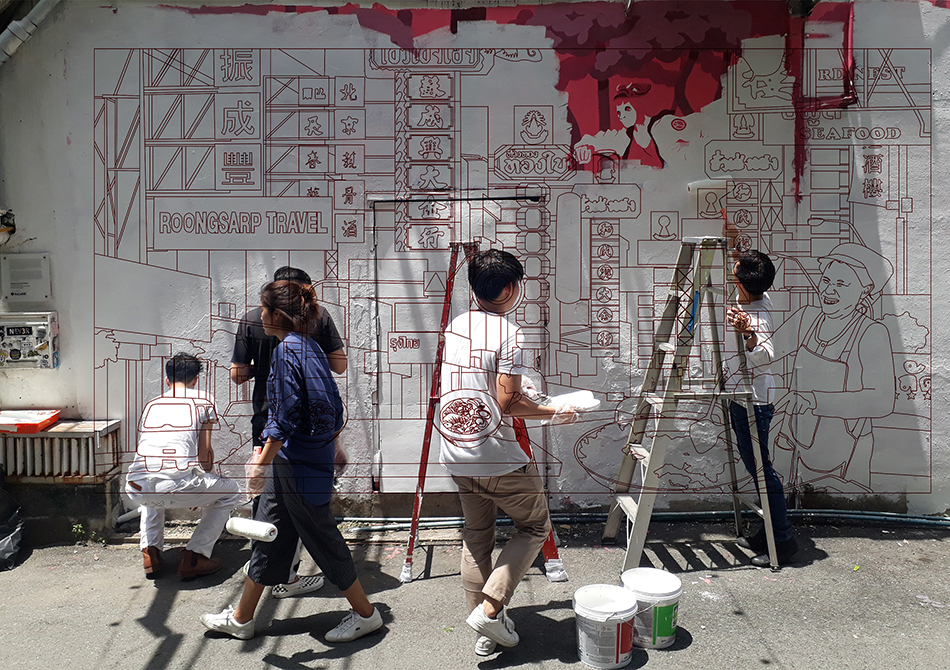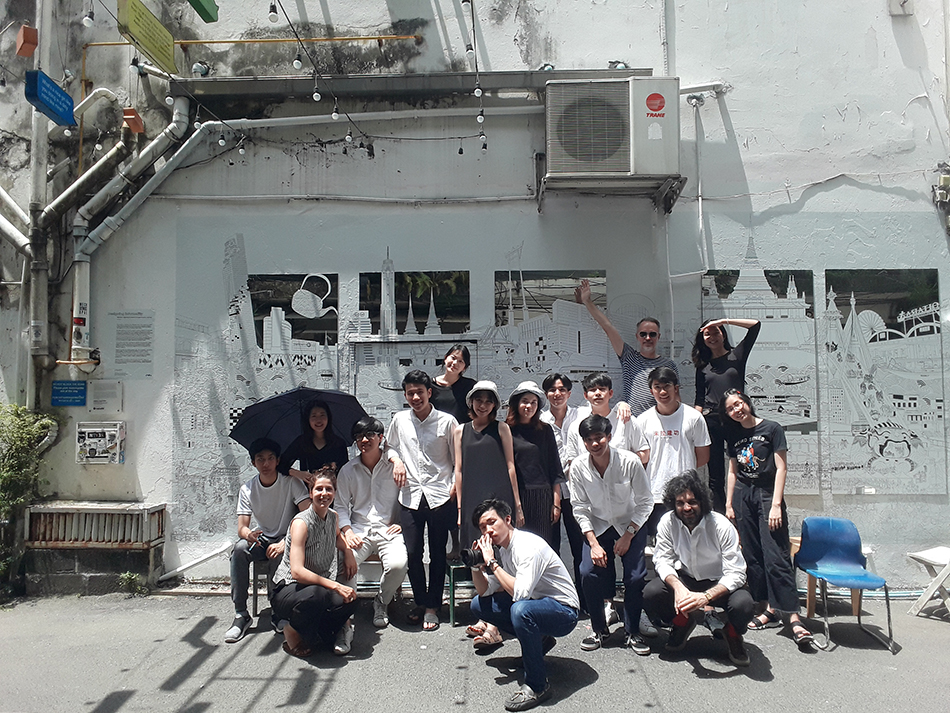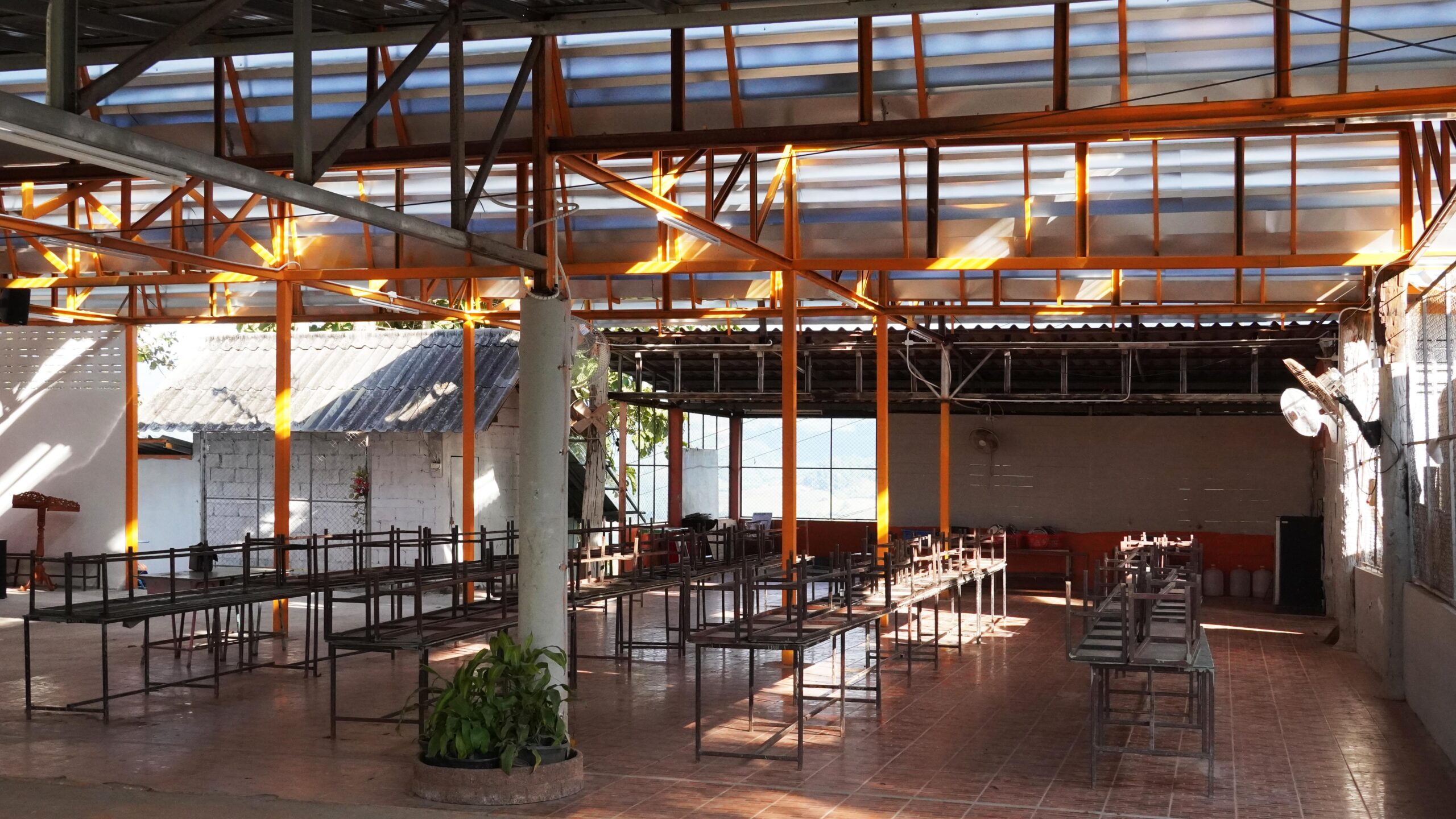Bangkok streets are lined with ubiquitous stalls, makeshift kitchens, and a large variety of temporary structures selling food, clothes, and electronic gadgets. This urban condition represents the continuation of a long-standing tradition of informal trade within the community.
In such a context, informality is an effective response to preconceived societal structures and an instrument to reorganize politically and formally imposed conditions. It is rooted in people’s daily lives, producing its own social, economic, and cultural sphere, manifested through symbolically charged objects and mundane rituals.
This workshop expresses informality as an architectural device through the construction of an inhabitable chariot–a hybrid between a market stall and a religious baldaquin. Researching what the markets already offer, sell, and display, the students organize the goods without misrepresenting their informality and spontaneity. The chariot produces a spatial scaffolding that challenges the relationship between the actors that inhabit it–sellers, monks, musicians, and pedestrians. Through a series of designed rituals and informal gatherings, students highlight the mutual influence between people’s behaviors and designed elements.
Students learn about the construction of movable structures, particularly the artisanal crafting of specific ornamental and functional components, to understand the connection between aesthetics, mechanisms, and spontaneous reactions.



